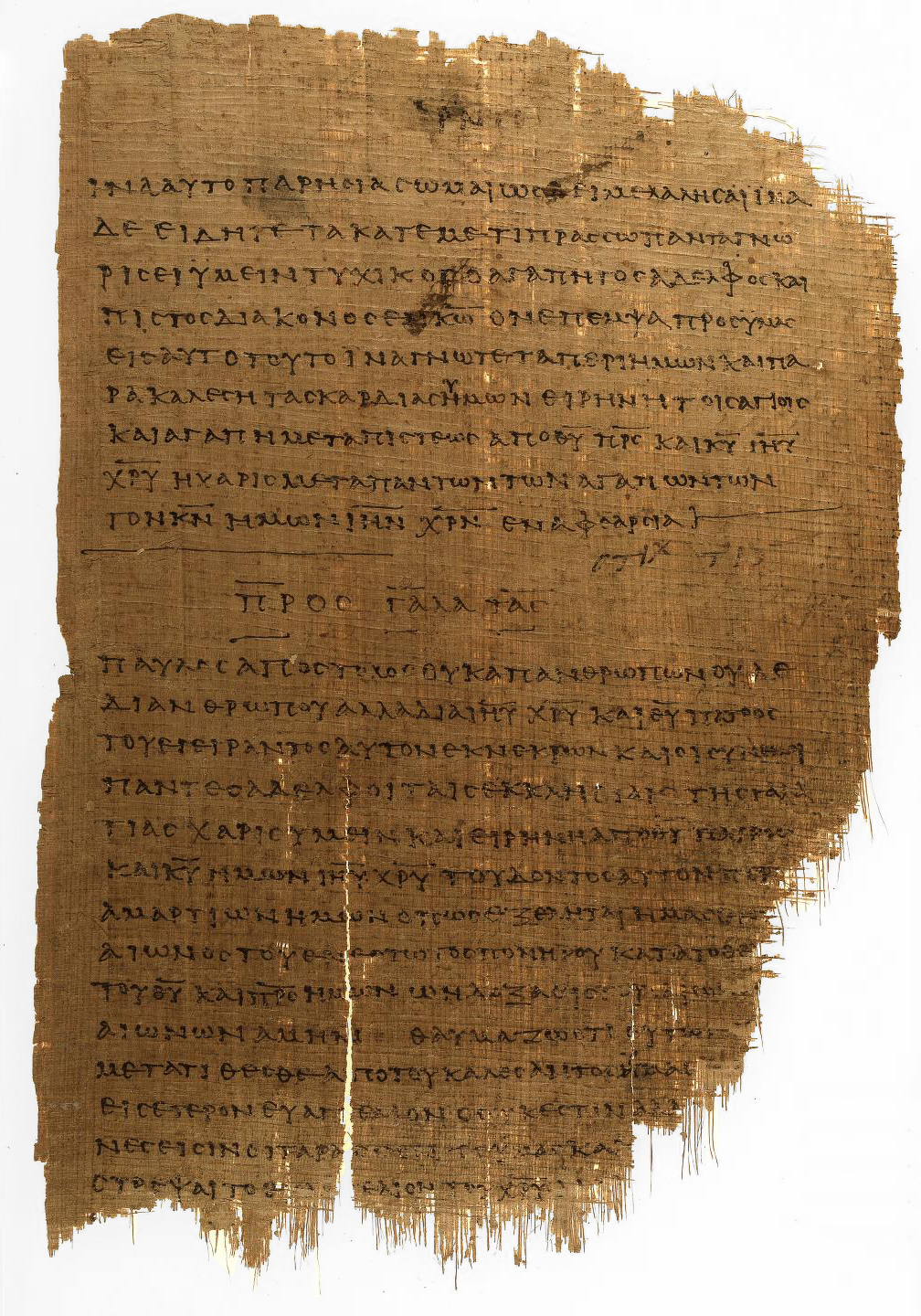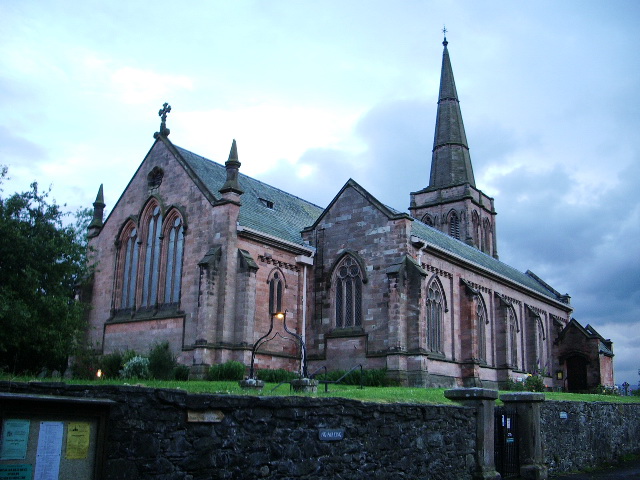|
Sonship Theology
Sonship theology, also known as Sonship teaching, is a movement within American Presbyterianism, associated with Jack Miller (1928–1996). Meaning Sonship theology emphasizes the Christian's adoption as a child of God. Tullian Tchividjian notes that Miller summed up the gospel in this way: "Cheer up; you're a lot worse off than you think you are, but in Jesus you're far more loved than you could have ever imagined." Sonship theology was associated with a group of congregations within the Orthodox Presbyterian Church called "New Life Churches". In the 1990s, most of these congregations left the OPC to join the Presbyterian Church in America. Tim Keller suggests that they were "made to feel unwelcome" in the OPC, since their "pietist/ revivalist" outlook "did not fit well with the more doctrinalist cast of the OPC." Gary North argued in 1991 that these churches "have not officially departed from confessional orthodoxy," but that "their focus has not been on traditional confessio ... [...More Info...] [...Related Items...] OR: [Wikipedia] [Google] [Baidu] |
Presbyterianism
Presbyterianism is a part of the Reformed tradition within Protestantism that broke from the Roman Catholic Church in Scotland by John Knox, who was a priest at St. Giles Cathedral (Church of Scotland). Presbyterian churches derive their name from the presbyterian form of church government by representative assemblies of elders. Many Reformed churches are organised this way, but the word ''Presbyterian'', when capitalized, is often applied to churches that trace their roots to the Church of Scotland or to English Dissenter groups that formed during the English Civil War. Presbyterian theology typically emphasizes the sovereignty of God, the authority of the Scriptures, and the necessity of grace through faith in Christ. Presbyterian church government was ensured in Scotland by the Acts of Union in 1707, which created the Kingdom of Great Britain. In fact, most Presbyterians found in England can trace a Scottish connection, and the Presbyterian denomination was also taken ... [...More Info...] [...Related Items...] OR: [Wikipedia] [Google] [Baidu] |
Reformed Tradition
Calvinism (also called the Reformed Tradition, Reformed Protestantism, Reformed Christianity, or simply Reformed) is a major branch of Protestantism that follows the Christian theology, theological tradition and forms of Christianity, Christian practice set down by John Calvin and other The Reformation, Reformation-era Protestant Reformers, theologians. It emphasizes the Sovereignty of God in Christianity, sovereignty of God and the Biblical authority, authority of the Bible. Calvinists broke from the Catholic Church, Roman Catholic Church in the 16th century. Calvinists differ from Lutheranism, Lutherans (another major branch of the Reformation) on the Lord's Supper in Reformed theology, spiritual real presence of Christ in the Lord's Supper, regulative principle of worship, theories of worship, the purpose and meaning of baptism, and the Law and Gospel#Lutheran and Reformed differences, use of God's law for believers, among other points. The label ''Calvinism'' can be misle ... [...More Info...] [...Related Items...] OR: [Wikipedia] [Google] [Baidu] |
Assurance (theology)
As a general term in theological use, assurance refers to a believer's confidence in God, God's response to prayer, and the hope of eternal salvation. In Protestant Christian doctrine, the term "assurance", also known as the Witness of the Spirit, affirms that the inner witness of the Holy Spirit allows the Christian disciple to know that he or she is justified. Based on the writings of St. Augustine of Hippo, ''assurance'' was historically a very important doctrine in Lutheranism and Calvinism, and remains a distinguishing doctrine of Methodism and Quakerism, although there are differences among these Christian traditions. Hymns that celebrate the witness of the Holy Spirit, such as "Blessed Assurance" are sung in Christian liturgies to celebrate the belief in assurance. John Wesley and Methodism John Wesley believed that all Christians have a faith which implies an ''assurance'' of God's forgiving love, and that one would feel that ''assurance'', or the "witness of the Spirit ... [...More Info...] [...Related Items...] OR: [Wikipedia] [Google] [Baidu] |
Epistle To The Galatians
The Epistle to the Galatians is the ninth book of the New Testament. It is a letter from Paul the Apostle to a number of Early Christian communities in Galatia. Scholars have suggested that this is either the Roman province of Galatia in southern Anatolia, or a large region defined by an ethnic group of Celtic people in central Anatolia. The language the letter was originally written in was Koine Greek and later translated into other languages. In this letter, Paul is principally concerned with the controversy surrounding gentile Christians and the Mosaic Law during the Apostolic Age. Paul argues that the gentile Galatians do not need to adhere to the tenets of the Mosaic Law, particularly religious male circumcision, by contextualizing the role of the law in light of the revelation of Christ. The Epistle to the Galatians has exerted enormous influence on the history of Christianity, the development of Christian theology, and the study of the Apostle Paul. The central disp ... [...More Info...] [...Related Items...] OR: [Wikipedia] [Google] [Baidu] |
Total Depravity
Total depravity (also called radical corruption or pervasive depravity) is a Protestant theological doctrine derived from the concept of original sin. It teaches that, as a consequence of man's fall, every person born into the world is enslaved to the service of sin as a result of their fallen nature and, apart from the efficacious (irresistible) or prevenient (enabling) grace of God, is completely unable to choose by themselves to follow God, refrain from evil, or accept the gift of salvation as it is offered. The doctrine is advocated to various degrees by many Protestant denominations, including some Lutheran synods, and all Calvinist churches. Arminian denominations, such as Methodists, believe and teach total depravity, but with distinct differences, the most important of which is the distinction between irresistible grace and prevenient grace. History In opposition to Pelagius, who believed that after The Fall people are able to choose not to sin, and contrary ... [...More Info...] [...Related Items...] OR: [Wikipedia] [Google] [Baidu] |
Irresistible Grace
Irresistible grace (also called effectual grace, effectual calling, or efficacious grace) is a doctrine in Christian theology particularly associated with Calvinism, which teaches that the saving grace of God is effectually applied to those whom he has determined to save (the elect) and, in God's timing, overcomes their resistance to obeying the call of the gospel, bringing them to faith in Christ. It is to be distinguished from prevenient grace, particularly associated with Arminianism, which teaches that the offer of salvation through grace does not act irresistibly in a purely cause-effect, deterministic method, but rather in an influence-and-response fashion that can be both freely accepted and freely denied. The doctrine Some claim that fourth-century Church Father Augustine of Hippo taught that God grants those whom he chooses for salvation the gift of persevering grace, and that they could not conceivably fall away. This doctrine gave rise to the doctrine of irresisti ... [...More Info...] [...Related Items...] OR: [Wikipedia] [Google] [Baidu] |
Jenkintown, Pennsylvania
Jenkintown is a borough in Montgomery County, Pennsylvania. It is approximately 10 miles (16 km) north of Center City Philadelphia. History The community was named for William Jenkins, a Welsh pioneer settler. Jenkintown is located just outside Philadelphia along the Route 611 corridor between Abington and Cheltenham Townships. The Borough was settled in about 1697 and incorporated on December 8, 1874 when approximately was taken from Abington Township. Today, the Borough is approximately 0.58 square miles and is home to 4,500 residents. The borough is a mostly residential community that is separated into East and West by the Business District that runs along and surrounds Old York Road (Route 611) corridor. On the east side of Old York Road, residential development is predominantly characterized by larger detached single-family homes on lots larger than the Borough average. On the southeast side of York Road, there is a small mixed concentration of row homes, duplexes ... [...More Info...] [...Related Items...] OR: [Wikipedia] [Google] [Baidu] |
Banner Of Truth
The Banner of Truth Trust is an Evangelical and Reformed non-profit"The Story of The Banner of Truth" by Iain H. Murray. publishing house, structured as a charitable trust and founded in in 1957 by Iain Murray, Sidney Norton and Jack Cullum. Its offices are now in , Scotland with a key branch office and distribution point in [...More Info...] [...Related Items...] OR: [Wikipedia] [Google] [Baidu] |
Geoff Thomas (pastor) publisher
{{DEFAULTSORT:Thomas, Geoffre ...
Hugh Geoffrey Thomas (born 15 October 1938 in Merthyr Tydfil) is a Welsh pastor. He was the pastor of Alfred Place Baptist Church for fifty years. Thomas studied at the University College of Cardiff and Westminster Theological Seminary. He is visiting professor of Historical Theology at Puritan Reformed Theological Seminary. Thomas is a Reformed Baptist. In 2013, a ''Festschrift'' was prepared in his honour. ''The Holy Spirit and Reformed Spirituality'' () includes contributions from Carl Trueman, Joel Beeke, and Derek Thomas. In 2022, his Autobiography was released: ''In The Shadow of the Rock'' (). References External links Geoffrey Thomas, biography Banner of Truth The Banner of Truth Trust is an Evangelical and Reformed non-profit"The Story ... [...More Info...] [...Related Items...] OR: [Wikipedia] [Google] [Baidu] |
Westminster Theological Journal
''Westminster Theological Journal'' is an evangelical theological journal published by Westminster Theological Seminary and edited by Vern Poythress Vern Sheridan Poythress (born 1946) is an American philosopher, theologian, New Testament scholar and mathematician, who is currently the New Testament chair of the ESV Oversight Committee. He is also the Professor of New Testament Interpretation .... References External links * Protestant studies journals Publications established in 1938 English-language journals Biannual journals {{christian-journal-stub ... [...More Info...] [...Related Items...] OR: [Wikipedia] [Google] [Baidu] |
Chad Van Dixhoorn
Chad B. Van Dixhoorn (born 1971), a Canadian-born theologian and historian, is the editor of the five-volume ''The Minutes and Papers of the Westminster Assembly: 1643-1652'' published by Oxford University Press in 2012. In 2013 he was elected a Fellow of the Royal Historical Society in recognition of his work on the Westminster assembly. In 2014 Banner of Truth Trust published Van Dixhoorn's second work, ''Confessing the Faith: a reader's guide to the Westminster Confession of Faith''. Van Dixhoorn received his Ph.D. from the University of Cambridge, and was awarded a post-doctoral fellowship from the British Academy. He received theological training at Westminster Theological Seminary (M.Div., Th.M.) and is a graduate of Huron College, The University of Western Ontario (BA). He was a member of the Faculty of History of the University of Cambridge from 2004-2008, he held three fellowships at Wolfson College, Cambridge, from 2004-2013, and he has taught history and theology at un ... [...More Info...] [...Related Items...] OR: [Wikipedia] [Google] [Baidu] |
Higher Life Movement
The Higher Life movement, also known as the Keswick movement or Keswickianism, is a Protestant theologies, Protestant theological tradition within evangelical Christianity that espouses a distinct teaching on the doctrine of entire sanctification. Its name comes from the ''Higher Christian Life'', a book by William Boardman published in 1858, as well as from the town in which the movement was first promoted—Keswick Conventions in Keswick, Cumbria, Keswick, England, the first of which was a tent revival in 1875 and continues to this day. Theology The main idea in the Keswickian theology of the Higher Life movement is that the Christians, Christian should move on from his initial Conversion to Christianity, conversion experience to also experience a Second work of grace, second work of God in his life. This work of God is called “entire sanctification,” “the second blessing,” “the second touch,” “being filled with the Holy Spirit,” and various other terms. High ... [...More Info...] [...Related Items...] OR: [Wikipedia] [Google] [Baidu] |

.jpg)




